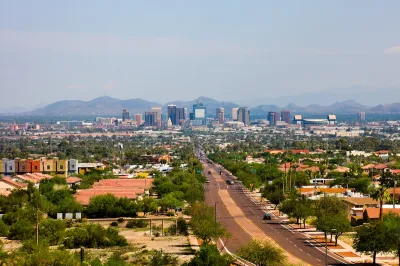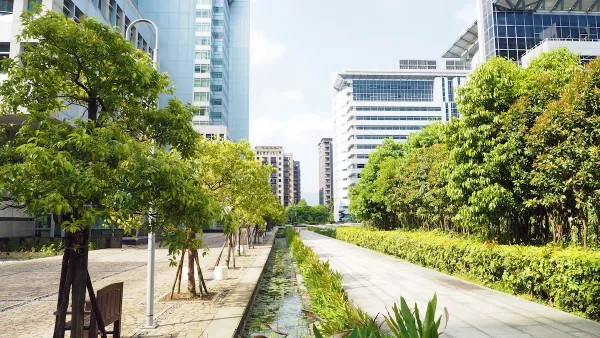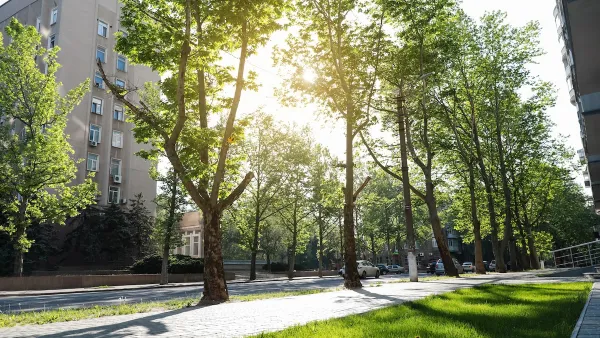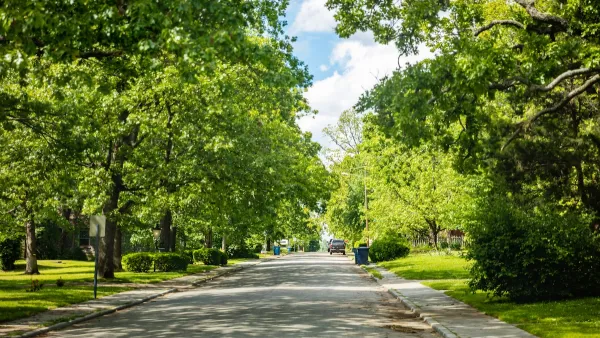Arizona State University's $5 million Greater Phoenix Urban Forestry Accelerator aims to combat record-breaking heat, improve shade coverage, and create green job pathways in underserved neighborhoods.

After enduring a record-breaking summer in 2024 with 113 consecutive days of 100-degree temperatures and 466 confirmed heat-related deaths, Phoenix is addressing its heat crisis through a $5 million urban forestry initiative led by Arizona State University (ASU). Funded by the USDA Forest Service Urban and Community Forestry Program under the Justice40 Initiative, the Greater Phoenix Urban Forestry Accelerator will create community-specific forestry plans through workshops and engage various stakeholders, including local governments, businesses, and nonprofits. As reported by Katarzyna Michalik, this three-year project aims to reduce the urban heat island effect by increasing shade coverage, particularly in underserved neighborhoods like Lindo Park West, Mountain View Park, and others along the metro’s light-rail corridor.
The initiative is notable for its focus on building green job pathways alongside its environmental goals. Partnering with organizations like Bartlett Tree Experts and Unlimited Potential, the program will offer training in arboriculture with a desert-adapted curriculum in both English and Spanish. A total of 144 paid learning opportunities and 67 internships will help participants pursue careers in gardening, landscaping, tree care, and water conservation. Additionally, five training labs and workshops will equip residents with skills to address Phoenix’s extreme heat challenges while ensuring bilingual professionals are prepared to meet industry demands.
The urban forestry effort also ties closely to social equity, targeting neighborhoods most affected by heat and lacking green infrastructure. Topics such as shade coverage, irrigation, stormwater management, and tree maintenance will be central to the program’s workshops. While the city’s Office of Heat Mitigation plans to plant 27,000 trees with a $60 million budget over the next five years, uncertainty looms over federal funding under the incoming Trump administration. Nevertheless, the initiative reflects a commitment to sustainability, equity, and resilience, with community training programs already underway in Phoenix, Tempe, Guadalupe, and Mesa.
FULL STORY: Urban forest project to cool Phoenix neighborhoods after record breaking 2024 summer heat

Analysis: Cybertruck Fatality Rate Far Exceeds That of Ford Pinto
The Tesla Cybertruck was recalled seven times last year.

National Parks Layoffs Will Cause Communities to Lose Billions
Thousands of essential park workers were laid off this week, just before the busy spring break season.

Retro-silient?: America’s First “Eco-burb,” The Woodlands Turns 50
A master-planned community north of Houston offers lessons on green infrastructure and resilient design, but falls short of its founder’s lofty affordability and walkability goals.

Test News Post 1
This is a summary

Analysis: Cybertruck Fatality Rate Far Exceeds That of Ford Pinto
The Tesla Cybertruck was recalled seven times last year.

Test News Headline 46
Test for the image on the front page.
Urban Design for Planners 1: Software Tools
This six-course series explores essential urban design concepts using open source software and equips planners with the tools they need to participate fully in the urban design process.
Planning for Universal Design
Learn the tools for implementing Universal Design in planning regulations.
EMC Planning Group, Inc.
Planetizen
Planetizen
Mpact (formerly Rail~Volution)
Great Falls Development Authority, Inc.
HUDs Office of Policy Development and Research
NYU Wagner Graduate School of Public Service




























